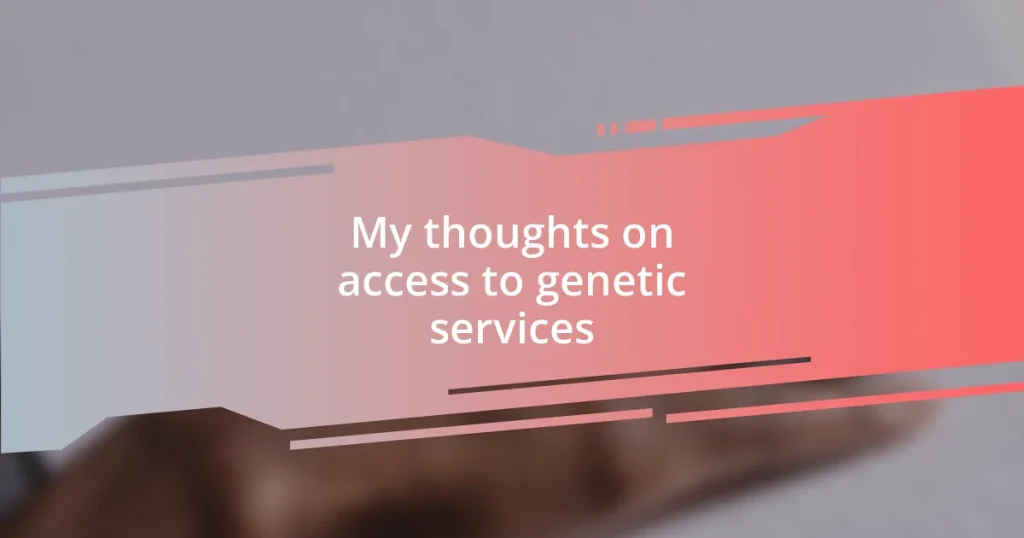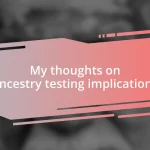Key takeaways:
- Genetic services play a crucial role in personalized medicine, enabling individuals to make informed health and lifestyle choices based on their genetic predispositions.
- Barriers to accessing genetic services include financial constraints, lack of insurance coverage, cultural stigma, limited awareness, and geographical disparities.
- Ethical concerns in genetic services revolve around genetic discrimination, the need for informed consent, and the familial implications of genetic knowledge.
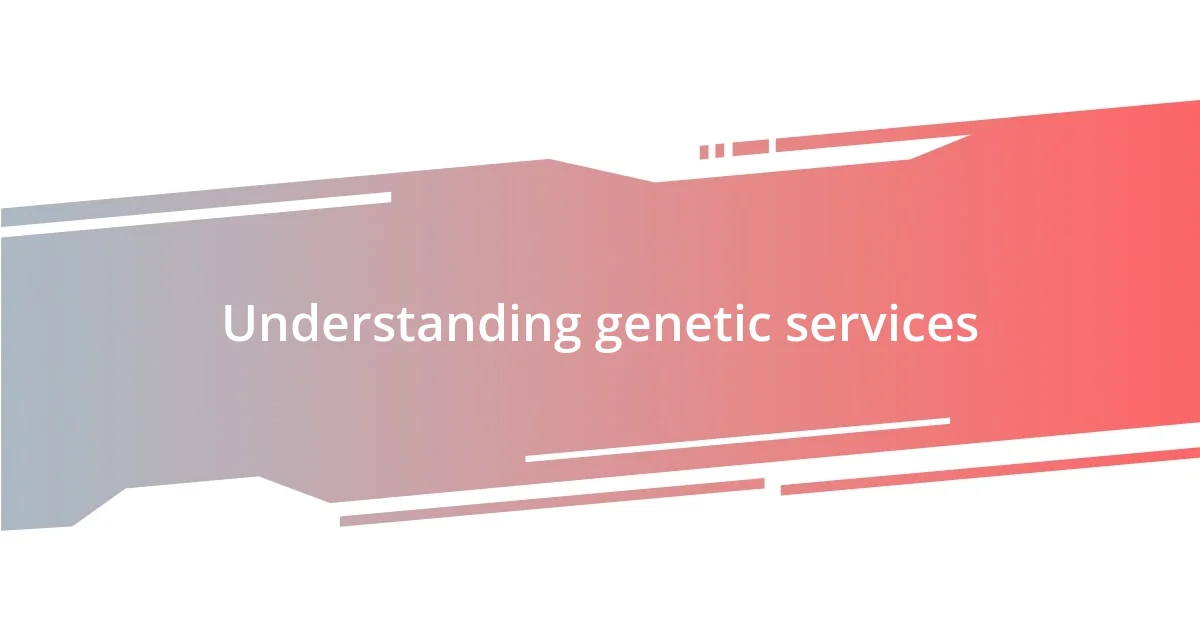
Understanding genetic services
Genetic services encompass a wide range of offerings, from genetic testing to counseling, all aimed at understanding an individual’s genetic makeup and the implications it may hold for their health. Personally, I remember sitting in a genetic counselor’s office, feeling a mix of anxiety and hope. That experience made me realize how essential it is to not only have access to these services but also the support that comes with them.
When we consider the impact of genetic services, it’s intriguing to think about how personalized medicine is becoming a reality. Have you ever wondered how knowing your genetic predisposition could influence not just your healthcare decisions but also your lifestyle choices? I’ve seen friends adjust their diets or exercise routines after learning about genetic risks, highlighting how this knowledge empowers individuals to take control of their health.
The emotional aspect of accessing genetic services can’t be overstated. It’s not simply about the data; it’s about grappling with the implications of what those results mean for you and your family. I once overheard a conversation about a young woman who hesitated to seek genetic counseling due to fear of what she might find. This made me think—how can we help others feel less intimidated and more informed about these crucial services?
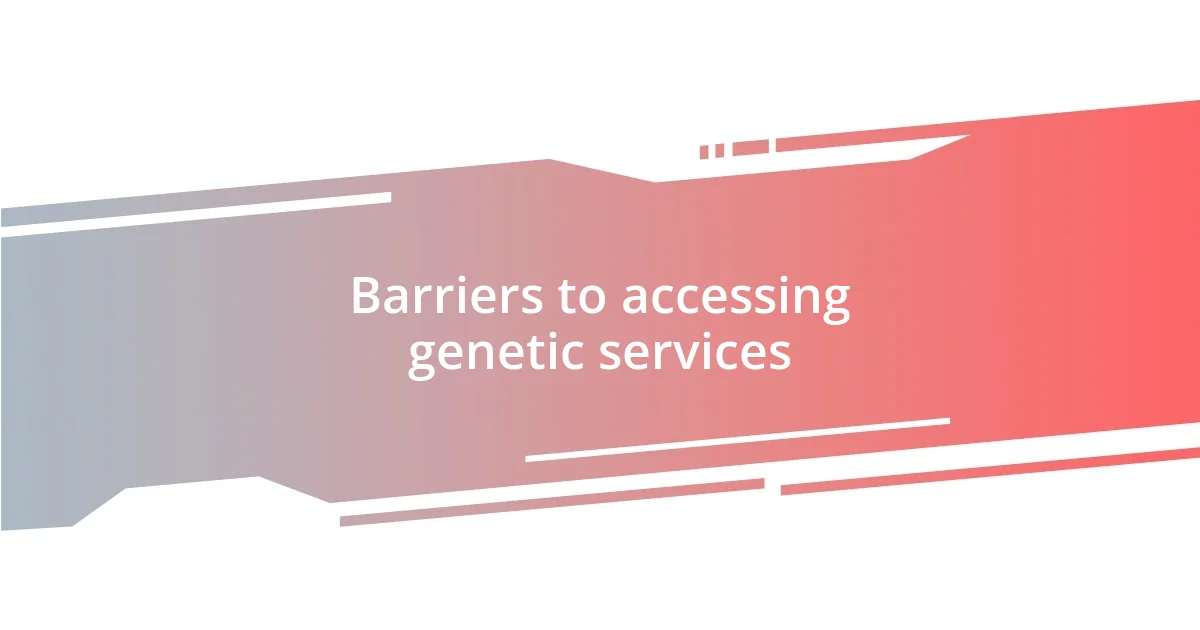
Barriers to accessing genetic services
Accessing genetic services can be fraught with challenges that go beyond just physical barriers. I know from observing friends that financial constraints often loom large. For instance, I once spoke to a colleague who wanted a genetic test but felt overwhelmed by the costs not covered by insurance. That reflection underscored for me how important it is to not only advocate for transparency in pricing but also for comprehensive insurance policies that address genetic testing.
Additionally, socio-cultural factors can create significant roadblocks. I recall a heart-to-heart with a friend from a different background who mentioned feeling apprehensive about genetic counseling due to cultural stigma. This sentiment is echoed by many who worry about the judgments or misunderstandings from their communities. Here are some common barriers that hinder access to genetic services:
- Cost of genetic testing and counseling
- Lack of insurance coverage
- Cultural stigma and misconceptions about genetic information
- Limited awareness of available services
- Geographical disparities limiting access in rural areas
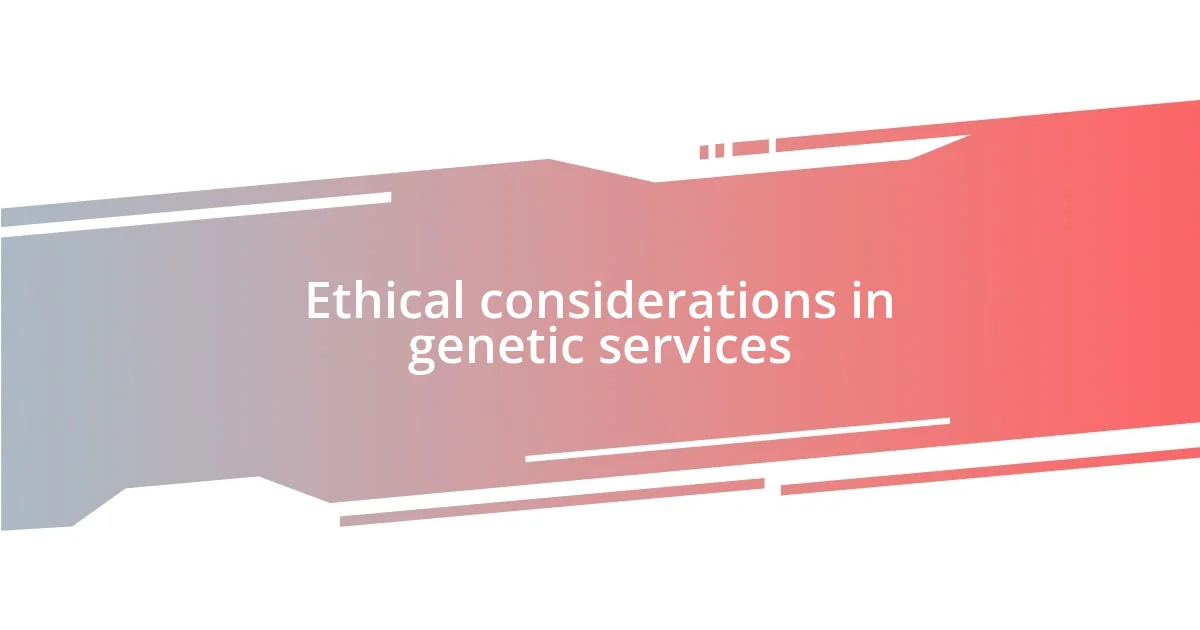
Ethical considerations in genetic services
Ethical considerations in genetic services touch on several critical aspects. One vital concern is the possibility of genetic discrimination. I recall a conversation with someone who had undergone genetic testing and was worried about how the results might be used by employers or insurance providers. It was striking to think that the very information meant to enhance health could also lead to prejudicial treatment, creating a powerful ethical dilemma.
Privacy and consent are equally essential topics in this realm. When I first learned about the importance of informed consent in genetic testing, I was surprised by how many people don’t fully grasp what they’re agreeing to. The decision to share genetic information isn’t simply procedural; it carries emotional weight and potential implications for family members. How can we ensure everyone understands their rights and the potential ramifications of their choices? It’s a question that lingers with me, highlighting the need for transparency in the services provided.
Additionally, the implications of genetic knowledge can ripple through families. I once spoke with a mother who feared how a positive genetic test for a hereditary condition could impact her children’s future. It’s not just about the individual; it’s about the entire familial landscape. These discussions open up broader conversations about responsibility and the role of genetic counselors in guiding these sensitive topics.
| Ethical Concern | Description |
|---|---|
| Genetic Discrimination | Potential misuse of genetic information by employers or insurers, leading to unfair treatment. |
| Informed Consent | The necessity for clear understanding of what sharing genetic information entails and its implications. |
| Family Implications | The impact of genetic knowledge on family dynamics and emotional well-being. |
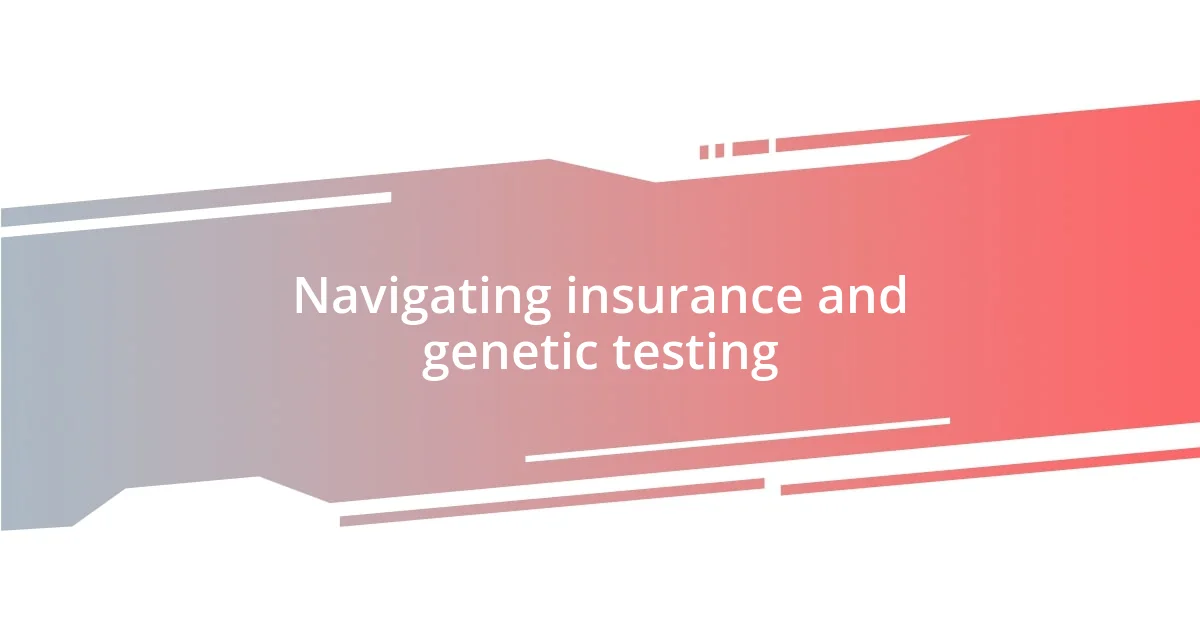
Navigating insurance and genetic testing
Navigating the intricacies of insurance when seeking genetic testing can feel like navigating a maze. I remember a friend who spent hours on the phone, only to discover that her policy didn’t cover the specific test she needed. How frustrating is it to think you’re doing everything right, only to be let down by the fine print in an insurance policy? Familiarizing yourself with your coverage and advocating for what you need is crucial.
In my experience, many people underestimate the importance of pre-authorization for genetic tests. I had a colleague who went ahead with testing, thinking it would be straightforward. Unfortunately, her lab bills became a harsh reality when her insurance denied coverage because she hadn’t obtained the necessary pre-approval. This situation serves as a reminder to diligently check the requirements beforehand, as being proactive can save you from unexpected financial strains.
Moreover, speaking to a genetic counselor can provide insights into what’s feasible under your insurance plan. I once attended a seminar where a counselor outlined how understanding your policy could directly affect the choice of tests you pursue. It made me realize how empowering it is to have someone guide you. With different insurance plans offering varied levels of coverage, having an informed advocate on your side can make a significant difference in your journey toward understanding your genetic health.










